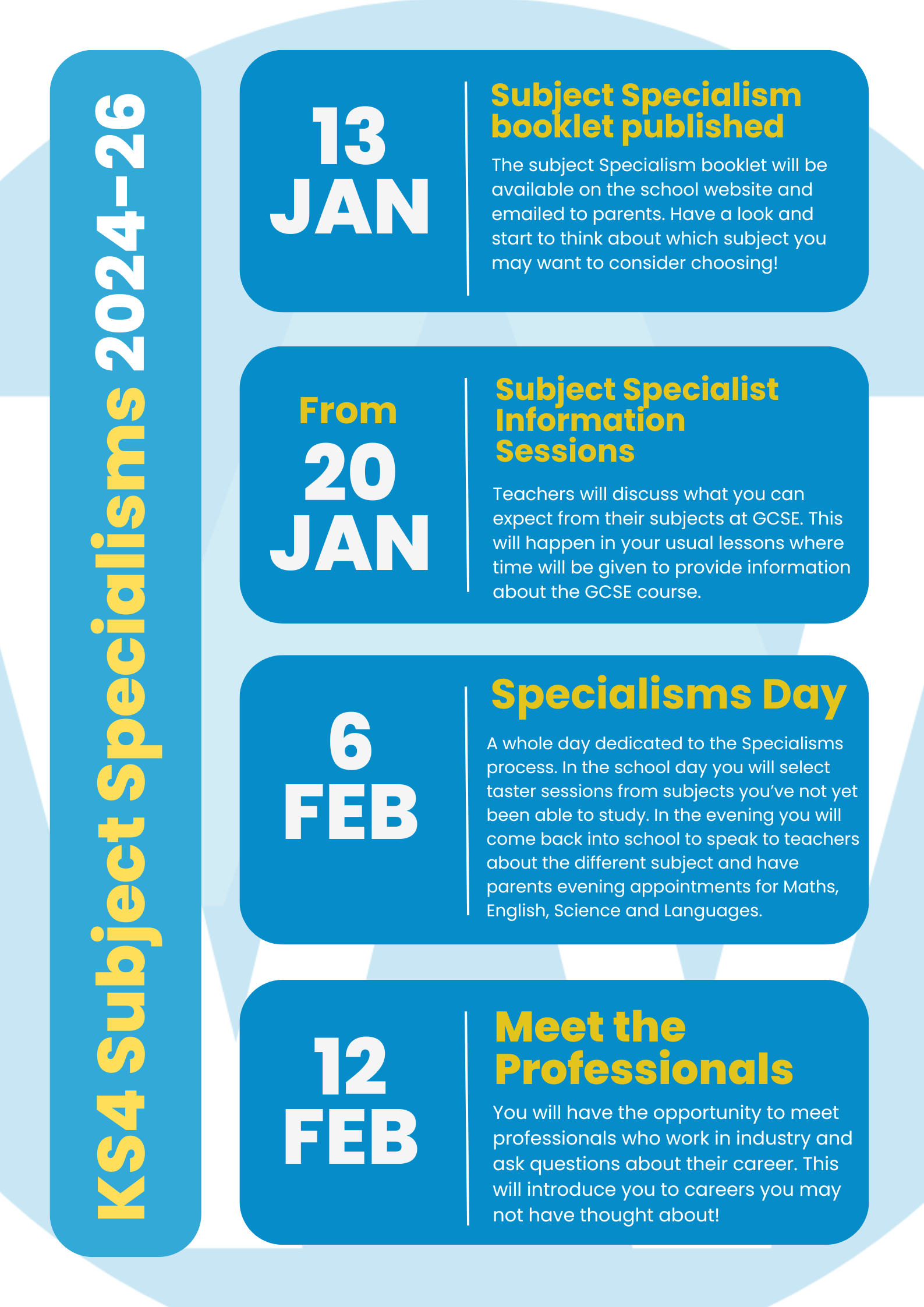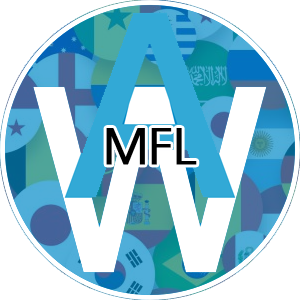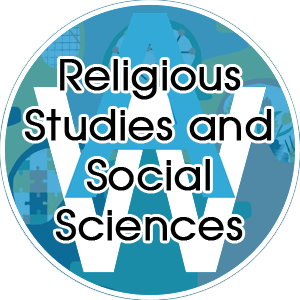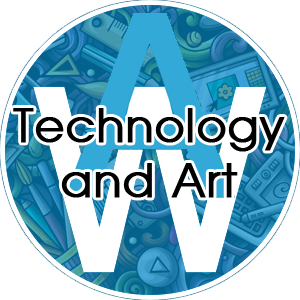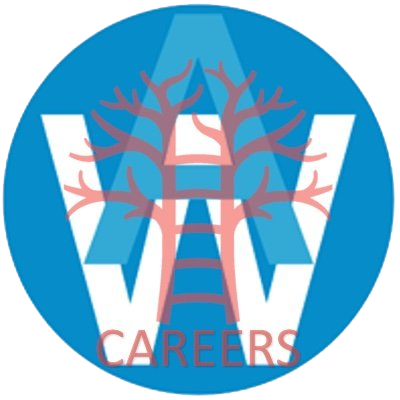Welcome to the Year 9 guide to Key Stage 4 Specialisms
2025 - 2027
A message to Year 9 about your Specialisms:
We have thought very carefully about our Key Stage 4 (Year 10-11) curriculum and how to offer you the best possible opportunities to build on your learning so far and to prepare for post-16 education and training and your future career. We review our courses and curriculum each year and all of the qualifications that we offer are recognised by colleges, universities and employers.
It is important that you have a broad and balanced curriculum, so most of you will take 9 qualifications, and you will continue to study many of the subjects that you have in Year 7-9. You will take 5 GCSE courses in English, Maths and Science. We encourage you to specialise by choosing a Humanities subject and a Language to continue studying. French, German & Mandarin are offered as Language specialisms. In addition, we offer a Languages hub option for you to continue to study a home language which has a GCSE qualification. The full list of these languages is detailed in the Specialisms booklet below. Being able to communicate in more than one language is important in a world that is so closely connected, and language learning supports your cognitive development. We do offer a small number of vocational courses for students who decide that a Language GCSE is not the right route for them.
You can then choose 2 further subjects from the 22 courses that we offer – this is an opportunity to pursue your talents and interests. Do things that you enjoy. I strongly suggest that you take at least one practical or creative subject – Art, Design Technology (Product Design or Textiles), Drama, Food and Nutrition, Creative iMedia, Music, Music Technology, PE or Photography. There are 3 subjects (Triple Science, Psychology and Computer Science) where it is important that you meet the entry requirement. If you want to take a new course that you haven’t studied at Key Stage 3 such as Business Studies, Health and Social Care, Music Technology, Photography or Psychology, make sure you really understand what the course is about. Students will be offered taster sessions in these subjects to support them in their decisions.
Don’t worry if you aren’t too sure what you want to do after your GCSEs – we are going to make sure that you continue to study a range of subjects so that you don’t limit your options when you are 16. Don’t stop studying a subject at GCSE that you think you might want to take at A level. However, you will not be required to take a new or vocational subject at GCSE in order to study it later, as some schools may not offer these subjects.
I hope you find this guide a helpful starting point, along with the information on the Specialisms page of our website. This is the start of this process; I look forward to seeing you at our Specialisms Evening in February, and hope that you will find the programme of activities planned for the first half of the spring term useful in making your specialism choices.
Mrs Mellors
Key Dates
Our Subjects
For detailed information and plans for each subject across all our year groups, please click the tiles below:
Careers and Post-16 advice
Now is a good time to start thinking about what you may want to do when you finish your GCSE qualifications. This can be helpful when making your choices of which subjects you want to specialise in. Access careers and Post-16 advice using the following links:
Enrichment
Clubs, Activities and Trips
 Please find timetables of extra curricular activities and enrichment opportunities we offer in and out of school attached below. We have a large enrichment timetable with a variety of different clubs, activities and opportunities for all students, and so it can usually take a few weeks at the start of a new term before we publish an updated list. Always ensure your child checks with a member of staff before attending.
Please find timetables of extra curricular activities and enrichment opportunities we offer in and out of school attached below. We have a large enrichment timetable with a variety of different clubs, activities and opportunities for all students, and so it can usually take a few weeks at the start of a new term before we publish an updated list. Always ensure your child checks with a member of staff before attending.
As part of our enrichment programme we run a large range of residential trips and overseas trips - please see overview of more significant and repeated trips attached below. Most trips run annually and some are specific to particular year groups and GCSE options. We offer two overnight experiences in Year 7 and 8 (see more on the Outdoor Learning page). In addition, students have the opportunity to complete the Duke of Edinburgh Bronze Award in Year 9 and Silver Award in Year 10/11, both of which include an expedition. Our aim is to ensure that all pupils are able to build valuable memories and skills by attending a variety of trips during their time at Alderman White School.
Virtual Enrichment
Extra-curricular music and performance is a huge part of what we do at Alderman White, so we thought we would create a platform to bring it to a wider audience.
Our Virtual Enrichment YouTube channel is now live showcasing the best of our talent. Featuring clips from school productions, cabarets, swing band, choir, and well over 100 of our students, and you can see highlights from some of the shows and recordings students have made at home.
 Alderman White School on YouTube
Alderman White School on YouTube
Outdoor Learning
To find out more about what Alderman White has to offer in outdoor learning, visit the new outdoor learning website! Where you can find information pages about the outdoor groups and residential trips that we run.
The Duke of Edinburgh's Award

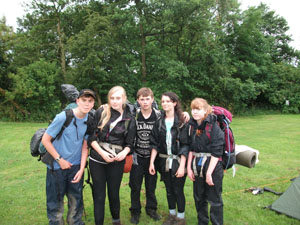 What is the Duke of Edinburgh's (DofE) Award?
What is the Duke of Edinburgh's (DofE) Award?
The DofE is an accredited programme of challenges. It aims to provide an enjoyable, challenging and rewarding programme of personal development for young people, which is of the highest quality and widest reach. Find out more at http://www.dofe.org/
Who can do it?
The Bronze award is open to students in Year 9, and the Silver award is open to students in Year 10.
What does it cost?
There will be a financial commitment to cover the costs of our expedition providers. For 2025, the cost of the expeditions are £245 for the Bronze award and £480 for the Silver award. Upon signing up for an award you will be asked for a £50 deposit. This not only secures a place but a portion of this money will be used to buy your child’s Welcome Pack from the DofE charity, which includes your DofE Participation Place. Any remaining balances can be paid in instalments throughout the year.
If the student qualifies for FSM6 (Free School Meals), the Bronze award total cost is £145 and the Silver award total cost is £330. Upon signing up for an award you will be asked for a £20 deposit.
We have done a great deal of fundraising and have been fortunate enough to secure some substantial funding from various charities across Nottinghamshire over this past year. This has enabled our school to invest in our own pool of equipment that we can lend out to students. This further reduces the overall cost to you as we no longer have to hire it.
Why should I do it?
There is a lot of scope in the programme for you to get credit for doing activities that you already enjoy. If you’re applying for university, college or even a job being able to add a DofE award to your CV/UCAS form will help.
Completing a DofE award really helps to broaden your horizons. During the course of a programme you’ll meet new people, experience new surroundings, improve your fitness and get to try new activities. Above all else, it’s fun!
What’s involved?
Whatever level of award you’re doing you’ll create your own personal programme with the help of your Leader- you just have to choose one activity for each section. It’s up to you what you do for each one, so you can choose something that you’re really into or keen to have a go at. It’s all about setting yourself a challenge and feeling great when you achieve it!
- Volunteering: This is your chance to make a real difference by helping someone, your community, the environment or an organisation. From being a Listener for the Samaritans or raising money for a cancer charity to helping out at an animal shelter or cleaning up after T-in-the-park- it’s your chance to help others.
- Physical: You can choose any sport, dance or fitness activity to get fitter, keep fit and get better at it! You could play for your local football team or learn to dance or take up something a little more unusual like octopushing or free running –it’s up to you- just choose something you’ll enjoy!
- Skills: Is there something you’ve always wanted to try or do you want to get better at your favourite hobby? Do it for your Skills section and get credit for it! Play the guitar, learn to drive, gain circus skills or even grow cacti - the sky’s the limit when it comes to skills.
- Expedition: Highs, lows, great laughs, amazing memories- you’ll experience it all as you plan, train for and complete an adventurous journey in the UK or abroad. You could find yourselves climbing, cycling, horse riding or walking - who knows where your expedition will take you!
How can I find out more?
If you would like further information on the Duke of Edinburgh’s Award please contact our Duke of Edinburgh’s award co-ordinators Sam Orchard-Robson or Andrea McLoughlin on 0115 9170424 or alternatively by e-mail at This email address is being protected from spambots. You need JavaScript enabled to view it.
School Uniform and Equipment
Requirements from September 2025
We want our students to feel a sense of pride and solidarity in being part of our school community. Complying with our uniform expectations is a public expression of support for our school INSPIRE values and indicates a readiness to work hard and make progress together. All uniform items should be practical for school, reflect the requirements of “professional workwear” and not be overly short or tight.
Please make sure that all school items are labelled with your child’s name.
Branded uniform items
We only require THREE branded items:
Item 1: Alderman White tie
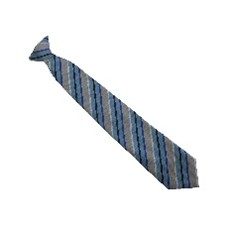
Item 2: White Hills Park blazer or Alderman White V neck jumper or Alderman White cardigan
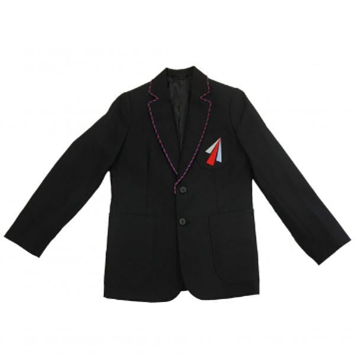 OR
OR 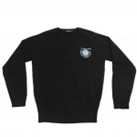 OR
OR 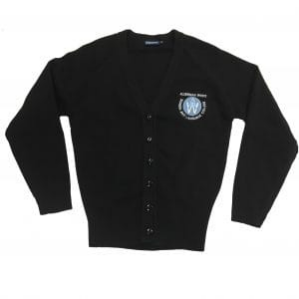
Item 3: WHP Trust PE t-shirt
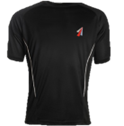
These items can be purchased from Morleys (schoolwearsolutions.com) or Big Fish Schoolwear. (See below for full supplier details).
All other items required for school can be purchased from a provider of your choice.
We aim to provide regular opportunities to purchase pre-loved uniform items. Please contact the school office if you require access to pre-loved uniform outside of these times.
School Uniform requirements:
|
Item |
Description / expectations |
Suppliers |
|
White Shirt |
Plain white school shirt with short or long sleeves. Worn with top button down up and fully tucked into trouser, shorts or skirt waistband. |
Any supplier of your choice |
|
Alderman White tie |
Branded item 1: Alderman White clip on tie. Ties that are not clip-on are available for purchase from School Reception where this is student / parent preference. Parents who choose this option must ensure that their child wears their tie neatly and correctly tied. |
Morleys or Big Fish Schoolwear |
|
White Hills Park Blazer OR Alderman White jumper or cardigan |
Branded item 2: These are the only items that can be worn in lessons over the shirt. Students are not required to wear them and may leave them at home or remove them if they wish to. |
Morleys or Big Fish Schoolwear |
|
Black school trousers, shorts or pleated skirt |
Standard style school items. Skirts should be of a suitable length (closer to the knee than the top of the leg) and must not be rolled up at the waistband. Skintight or stretchy material trousers or skirts are not suitable. |
Any supplier of your choice |
|
Socks or tights |
Plain black or white socks. Plain black or neutral tights. |
Any supplier of your choice |
|
Footwear |
Plain black leather or leather look footwear which is flat or with low heels. Plain black leather or leather look trainers may be worn as long as they do not have “air bubbles” in the heel. Ankle boots may be worn. |
Any supplier of your choice |
|
Coat |
A sensible waterproof coat in a single colour or simple pattern with no significant lettering or large logos. “Hoodies” or sports / tracksuit tops may not be worn as a coat. Hoods must be down when students are inside the school building. |
Any supplier of your choice |
|
Headwear worn for religious or cultural reason e.g. hijab. |
Black or navy blue. |
Any supplier of your choice |
Suitable trousers, shorts or skirts:
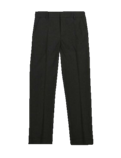
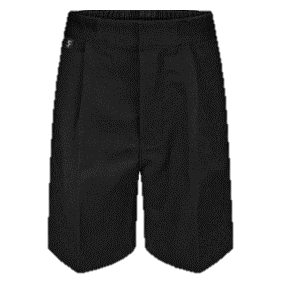
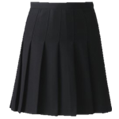
Examples of suitable plain black leather or leather-look footwear:
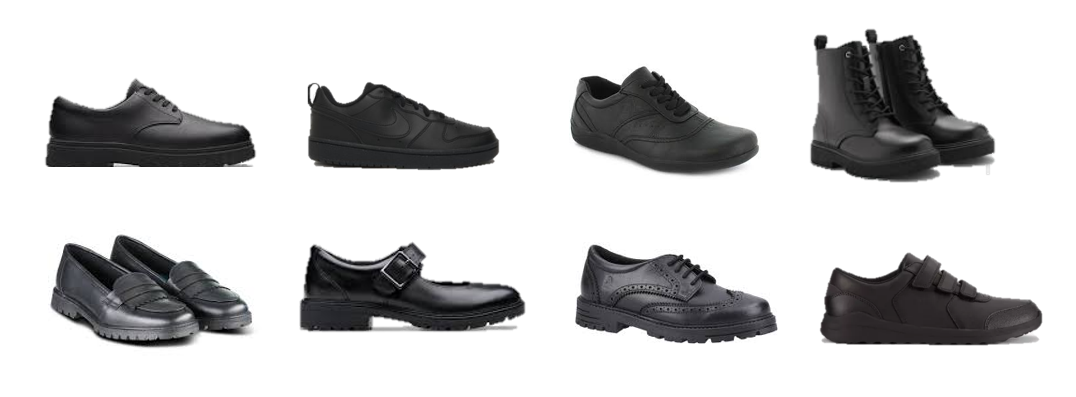
Please check with school atThis email address is being protected from spambots. You need JavaScript enabled to view it. before purchasing if you aren’t sure.
Additional Information:
- A black V-neck jumper or cardigan (with or without AW logo) may be worn under the blazer. Students will be allowed to remove their blazer in lessons if they are too warm.
- Any clothing worn under the shirt should be white or skin tone. Long sleeved items cannot be worn under a short-sleeved shirt.
- Tracksuit trousers, joggers or shorts may not be worn underneath school trousers.
- Hats may be worn outside for warmth in winter and protection from the sun, especially in the summer. Hats and coat hoods may not be worn inside. Baseball caps are not allowed on site.
- Any items other than the ones listed above should not be brought or worn in school and may be confiscated if seen.
PE Uniform – Required items:
|
Item |
Description / expectations |
Suppliers |
|
WHP PE t-shirt |
Branded item 3: WHP Trust short sleeve sports top. |
Morleys or Big Fish Schoolwear |
|
Shorts, tracksuit bottoms or sports leggings |
Plain black. Small logos are permitted.
|
Any supplier of your choice |
|
Sports trainers |
Any pair of sports trainers.
|
Any supplier of your choice |
|
Socks |
Plain black or white. Football socks may be suitable for some activities but are not required for PE lessons. |
Any supplier of your choice |
PE Uniform – Optional items:
|
Item |
Description / expectations |
Suppliers |
|
Football boots |
Recommended for rugby and football PE lessons. Required for football and rugby after school club and fixtures. |
Any supplier of your choice |
|
Shin pads |
Recommended for football PE lessons. Required for football after school club and fixtures. |
Any supplier of your choice |
|
Gum shield |
Required for rugby after school club and fixtures (not required for PE lessons). |
Any supplier of your choice |
|
Base layer |
Plain black if required in colder weather. |
Any supplier of your choice |
|
Plain black fleece |
A plain black fleece without a hood (or WHP ¼ zip tracksuit top) if required in colder weather. |
Any supplier of your choice (Morleys or Big Fish Schoolwear) |
|
Sports Hijab |
Plain black, grey or navy blue. We advise that if a student wears a hijab, a sports hijab is worn for PE. |
Any supplier of your choice |
NO JEWELLERY TO BE WORN IN ANY PE LESSONS.
- Students are expected to wear full school uniform to school on days that they have PE. They should bring their PE kit to school with them and use the changing facilities for PE lessons.
- Students may leave school in their PE kit if they have PE in the afternoon.
Make-up, Hair and Jewellery
Make-Up
Students must not wear any noticeable make up.
- False eye lashes should not be worn as these damage natural eye lashes.
- Gel nails, nail extensions and nail varnish are not permitted in school and will have to be removed before your child attends lessons.
Jewellery
We discourage students from wearing jewellery in school, especially items of financial or sentimental value that cannot be replaced. School cannot take responsibility or liability for any items of jewellery brought to school and time cannot be spent searching for items that have gone missing.
Students may wear a maximum of:
- An analogue or digital watch (no SMART watches)
- 2 small stud or plain sleeper earrings in each ear
- One small plain ring on each hand
- One thin bracelet or band
- One small pin badge on their blazer or jumper that is in keeping with our school values.
- A thin necklace or chain may be worn for religious or sentimental reasons under the school shirt, but this should not be seen in school.
- A clear plastic piercing retainer in the side of one nostril.
Students may not wear any other piercings, and facial piercings are not allowed in school.
Smart watches and other electronic devices (Fitbits etc) must not be seen or heard in school.
All jewellery must be in keeping with the school values and ethos.
Students will be required to remove all jewellery for PE lessons in line with guidance. This will need to be left in the student’s bag or locker, and we strongly advise that jewellery is not worn on days when students have PE. Students may be required to remove some or all jewellery for other practical lessons and activities in line with health and safety guidance.
While there are no legal age limits for piercings in England, most reputable piercers will have age limits and requirements for parental permission. We strongly discourage students from having body, tongue and mouth piercings while they are still at school. Any piercings other than those described above may not be worn in school. If you are in any doubt about what will or will not be allowed, we suggest discussing it with a member of staff before having the piercing.
Hair
- Hairstyles should not be extreme – no tram lines or shaved patterns in hair or lines in eyebrows.
- Hair colour should be within the natural range.
- We recognise that students have a range of natural hair colours and types, and we are proactive in ensuring that our policy towards hair styles is inclusive and non-discriminatory.
It is our intention that our uniform requirements are inclusive and comply with the requirements of the Equality Act 2010. Please contact school with any questions relating to cultural or religious requirements.
Our uniform and PE kit suppliers:
Morleys Schoolwear
116-118 Bramcote Avenue, Chilwell, NG9 4DR
Tel: 0115 925 8046
Web: schoolwearsolutions.com/our-schools/alderman-white-school/
Big Fish School Wear
Web: bigfishschoolwear.co.uk
Web username: Alderman
Web password: AW123
Non-Compliance Policy
Items that are not allowed in school will be confiscated and returned at the end of the school day.
Students may not be able to attend lessons until they are in correct uniform. We will always try to resolve any issues as quickly as possible by asking parents to bring the missing item into school or loaning a clean replacement item.
Property and Personal Equipment
Your child must have the following equipment with them in school every day (all items as far as possible should be clearly labelled or marked):
- A fully charged Chromebook
A pencil case or tin containing:
- At least 2 black/blue pens (more is fine)
- 2 green pens
- Pencil and sharpener
- Ruler (preferably 30 cm)
- Rubber
- Glue stick
- Coloured pens or pencils
- School compliant scientific calculator (can be purchased from school for £8.50 if not already owned) – details of how to order remotely are available from the school reception.
The following equipment will be provided by school and your child must take it with them to every lesson:
- Reading book - these will be borrowed from the school library
- Mini whiteboard and pen
- School planner – these will be provided to Year 7 and 8 students and can be purchased from reception is required by students in Year 9-11.
School Bag
A suitable school bag large enough to contain the equipment above as well as schoolbooks / folders / additional equipment when these are required to be taken home.
If you require support with providing uniform or equipment please contact your Progress Leader via the email address below…
Year 7 - Mrs Ferris: This email address is being protected from spambots. You need JavaScript enabled to view it.
Year 8 - Mr Foster: This email address is being protected from spambots. You need JavaScript enabled to view it.
Year 9 - Mr Palmer: This email address is being protected from spambots. You need JavaScript enabled to view it.
Year 10 - Mr Allsopp: This email address is being protected from spambots. You need JavaScript enabled to view it.
Year 11 - Ms Friend: This email address is being protected from spambots. You need JavaScript enabled to view it.
Food Technology Ingredients (on the days where required)
You will be notified of this via stickers in planners / recipe sheets which will also be available on the Google Classroom as assignments.
Lockers
Lockers are available to all students on request.
Payment System
Payments for all items, including school lunches, should be paid for on the 'My Child at School' (MCAS) app. If you need to pay in cash, please avoid sending large sums of money to school unless for a specific reason (for example paying for a trip), although this can be avoided by using PayPoint to pay into the MCAS system. Any money that is brought in should be stored securely about the person and not left unattended in bags or coat pockets.
Liability and Insurance
The school cannot be responsible for personal equipment , although naturally, we try hard to create a safe environment. Students should not bring in valuables, for example, mobile phones, iPods, iPads, or electric games into school. We cannot be held responsible for any of these items in the event of loss or breakage.
It is very sensible if all possessions are clearly marked with the owner’s name. This makes the task of searching for lost property much easier.
Graduation
The White Hills Park Graduation scheme recognises students’ academic achievements alongside other contributions to the life of the school, the WHP Trust and the wider community. There are four levels of graduation: Bronze, Silver, Gold and Platinum. Each level requires students to demonstrate sustained effort and achievement as well as engagement with both school and the wider community. There is a particular emphasis on leadership and involvement with activities after school.
During the academic year students are asked to chart their progress against the level-specific criteria and apply for graduation once these criteria have been fulfilled. Their success is celebrated at a Federation Graduation Ceremony to which parents are invited. This annual event also showcases our students’ many successes both in and outside the classroom. The regular recording and validation of students’ engagement in extra-curricular activities help them to create a personal portfolio outlining their participation, skills and successes which will be invaluable when applying for places in higher education or seeking employment.
Students who can demonstrate engagement and initiative are often highly sought after by employers and universities alike and the graduation scheme is designed to develop these important life-skills.
The WHP Graduation scheme is overseen by Deputy Executive Headteacher, Karsten Stephan.
Careers Overview
Jump to:
• Alderman White Vision • Careers Programme • Our Partnerships •
• Labour Market Information • Provider Access • The Quality In Careers Standard
Welcome to the Alderman White careers page. At Alderman White we endeavour to meet The Gatsby Benchmarks:
|
1. A stable Careers Programme |
Every school and college should have an embedded programme of career education and guidance that is known and understood by pupils, parents, teachers, governors and employers. |
|
2. Learning from career and labour market information |
Every pupil, and their parents, should have access to good quality information about future study options and labour market opportunities. They will need the support of an informed adviser to make best use of available information. |
|
3. Addressing the needs of each pupil. |
Pupils have different career guidance needs at different stages. Opportunities for advice and support need to be tailored to the needs of each pupil. A school’s careers programme should embed equality and diversity considerations throughout. |
|
4. Linking curriculum to careers |
All teachers should link curriculum learning with careers. STEM subject teachers should highlight the relevance of STEM subjects for a wide range of future career paths. |
|
5. Encounters with employers and employees |
Every pupil should have multiple opportunities to learn from employers about work, employment and the skills that are valued in the workplace. This can be through a range of enrichment activities including visiting speakers, mentoring and enterprise schemes. |
|
6. Experience of work places |
Every pupil should have first-hand experiences of the workplace through work visits, work shadowing and/or work experience to help their exploration of career opportunities, and expand their networks. |
|
7. Encounters of further and higher education |
All pupils should understand the full range of learning opportunities that are available to them. This includes both academic and vocational routes and learning in schools, colleges, universities and in the workplace. |
|
8. Personal guidance |
Every pupil should have opportunities for guidance interviews with a career adviser, who could be internal (a member of school staff) or external, provided they are trained to an appropriate level. These should be available whenever significant study or career choices are being made. They should be expected for all pupils but should be timed to meet their individual needs. |
For more information, please explore the sections on this careers page, or contact our Careers Leader, Mr Elliott Moore on This email address is being protected from spambots. You need JavaScript enabled to view it., or by calling 0115 9170424.
Alderman White Vision
Our vision for careers at Alderman White is to:
- Equip students with the knowledge and skills required to follow their desired pathway after their time at Alderman White.
- Provide quality careers guidance around education and the world of work.
- Inspire students to work towards their aspirations and goals.
- Offer an effective careers programme, including many encounters with post-16 education providers, and employers.
Careers Programme
At Alderman White School, we have created a continuous careers programme for students from Year 7 through to Year 11. We believe in each school year there are key ideas to be discovered and important decisions to be made in terms of a student’s pathway to their post-16 education and future. Our students have their own Unifrog Profile where they can complete activities and keep track of their careers guidance (more information below).
Year Group |
Key Ideas |
Themes |
|
7 |
Start thinking about the things that you enjoy and the things you are good at – and how these can support your career planning. |
|
|
8 |
Get an overview of the key things you will need to consider when it comes to thinking about your education and career. |
|
|
9 |
Learn how your GCSE choices could impact on your future education options and career. |
|
|
10 |
Start taking ownership of your development by actively seeking out opportunities and by asking for help, support and feedback. |
|
|
11 |
Explore your options and make a more informed choice about what to do when you finish Year 11. |
|
Our careers programme is regularly assessed and its impact evaluated by our careers leader. Methods such as student voice, event/activity feedback forms and the Compass+ Audit are used to support this evaluation.
Our Partnerships
Ideas4Careers

It is a statutory duty that all schools must provide impartial, external, careers advice and guidance for their students. We work closely with Ideas4Careers UK Ltd, an external and independent careers and employability skills training company, to deliver careers information, advice, guidance and employability skills support. Ideas4Careers is a Matrix Standard accredited company and recognised by the LEP (Local Enterprise Partnership) D2N2 as a high-quality provider helping young people to develop their skills as part of the D2N2 Strategic Economic Plan. All advisers are members of the Career Development Institute (CDI).
Ideas4Careers support includes advice and guidance on a face-to-face basis in a confidential setting. Following a careers meeting, students will receive a personalised Career Development Plan outlining the issues discussed and action points from qualified advisers. Ideas4Careers advisers have many years’ professional experience in helping young people to feel inspired and motivated about their future careers.
Unifrog
The universal destinations platform. Every student has a Unifrog login which supports their careers guidance in school and their post-16 applications. The platform helps students with the whole progression process - from exploring their interests, to recording the great things they've done, to finding education and training opportunities, to drafting their applications.
Unifrog also helps teachers to manage the process - from delivering engaging lessons using our off-the-shelf teaching resources, to tracking careers interactions, to drafting References, to submitting applications.
University Compare
University Compare is a platform designed to help students make informed decisions about their next steps in education. It provides university comparisons, student reviews, and practical guidance on applications and career options, making it a valuable resource for students exploring higher education.
Careers and Enterprise Company
We are supported by the Careers and Enterprise Company under the D2N2 Career Hub. Through them, our Local Enterprise Partner (LEP), we have begun a partnership with a Local Enterprise Adviser who works for Ideagen.
Labour Market Information (LMI)
The leading sources of employment growth in Derby, Derbyshire, Nottingham and Nottinghamshire LEP area are forecast to be construction, wholesale and retail trades, health and social care, support services and information technology.
LMI for All is an online data portal, developed by the UK Commission for Employment and Skills, which brings together existing national sources of high quality labour market information (LMI) helping to inform people’s choices about their careers. In the boxes below you can select a career and find out the average earnings for that profession. You can also read about projected work force changes, is your career aspiration in a growing or decreasing sector?
Policy Statement on Provider Access
To contact the school about opportunities for visiting or providing resources, please contact the Careers Leader: Mr Elliott Moore on This email address is being protected from spambots. You need JavaScript enabled to view it., or by calling 0115 9170424.
Introduction
This policy statement sets out the school’s arrangements for managing the access of providers to pupils at the school for the purposes of giving them information about the provider’s education or training offer. This complies with the school’s legal obligations under the Provider Access Legislation which came into force on 1st January 2023.
- Schools must provide six encounters with providers of ‘approved technical education qualifications or apprenticeships’ or someone representing them if they “are particularly well placed to engage and inform pupils about the options available”.
- All six encounters must happen for a reasonable period of time during the standard school day.
- Expect most provider encounters to be face-to-face but encourage a blended approach with the use of virtual engagement where access may be an issue.
- The school should not do anything which might limit the ability of pupils to attend.
- All pupils should have the same opportunities for meaningful provider encounters. Some pupils with special educational needs and disabilities, looked after children and pupils from Gypsy, Roma and Traveller communities may need additional support to access provider encounters.
Schools must ensure the provider of technical education or apprenticeships provides information to pupils that, as a minimum, includes:
- information about the provider and the approved technical education qualifications or apprenticeships that the provider offers,
- information about the careers to which those technical education qualifications or apprenticeships might lead,
- a description of what learning or training with the provider is like,
- responses to questions from the pupils about the provider or approved technical education qualifications and apprenticeships.
Student entitlement
Students in Years 7-11 are entitled:
- To find out about technical education qualifications and apprenticeship opportunities, as part of a careers programme which provides information on the full range of education and training options available at each transition point.
- To hear from a range of local providers about the opportunities they offer, including technical education and apprenticeships – through curriculum evenings, group discussions and taster events.
- To understand how to make applications for the full range of academic and technical courses.
Students should experience six encounters with providers of ‘approved technical education qualifications or apprenticeships’ or someone representing them if they “are particularly well placed to engage and inform pupils about the options available” from Year 8-13.
Students will experience a minimum of two encounters during the ‘first key phase’ (Year 8 - 9) and two encounters during the ‘second key phase’ (Year 10 - 11). Two more occur in the ‘third key phase’ (Year 12-13) after pupils have left this school.
- All encounters must happen for a reasonable period of time during the standard school day.
- One encounter is defined as one meeting/session between pupils and one provider.
- Most provider encounters will be face-to-face but we encourage a blended approach with the use of virtual engagement where access may be an issue.
- The school should not do anything which might limit the ability of pupils to attend.
- All pupils should have the same opportunities for meaningful provider encounters. Some pupils with SEND may need extra support to access provider encounters.
Schools must ensure the provider of technical education or apprenticeships provides information to pupils that, as a minimum, includes:
- information about the provider and the approved technical education qualifications or apprenticeships that the provider offers,
- information about the careers to which those technical education qualifications or apprenticeships might lead,
- a description of what learning or training with the provider is like,
- responses to questions from the pupils about the provider or approved technical education qualifications and apprenticeships.
Management of provider access requests
Opportunities for access
Our provision includes various opportunities for students to access a range of providers. These events are integrated into the wider school careers programme. They include, but are not limited to, assemblies, presentations and workshops from apprenticeship and college providers and the Careers Fair.
Procedure
A provider wishing to request access should contact Mr Elliott Moore (Careers Leader), via the school contact details above. This will support the school and provider to identify the most suitable opportunity within the careers programme. The school safeguarding policy sets out the school’s approach to allowing providers into school as visitors to talk to our students.
Resources
Once visits have been agreed, the school will provide appropriate rooming to facilitate the visit, along with any equipment requested by the provider, where it is available. Providers are welcome to leave a copy of their prospectus or other relevant course literature to be available for students.
Providers previously worked with
We have worked with numerous providers in recent years, who have delivered assemblies, attended mock interviews, attended careers fairs, provided workshops and been involved in other forms of encounter. These providers include but are not limited to:
- Local colleges such as Nottingham College and Confetti College
- Local sixth forms such as Bramcote College, NUAST, Bilborough College, George Spencer
- Nottingham University
- Think Big Goals
- Experian
- Rolls Royce
- And many more!
Destinations of previous pupils
Last year almost half of our Year 11 pupils went to Bilborough College. Other destinations included Nottingham College, Confetti College, Bramcote College and also a number of local apprenticeships.
Complaints
Any complaints related to provider access can be raised following the school complaints procedure.
Monitoring
Our website Careers information will be reviewed annually and approved by the Local Governing Body. Our website careers information will next be reviewed in February 2026.
![]()
Alderman White School is a member of
The White Hills Park Trust.

Website design and content
© The White Hills Park Trust 2025

